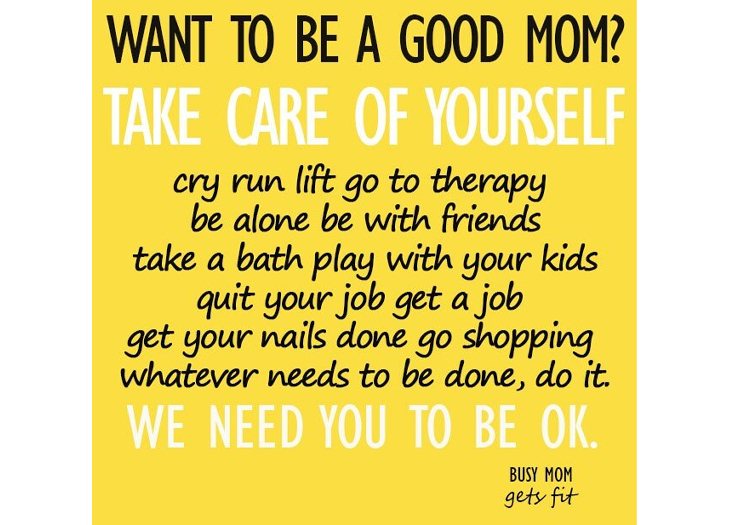- Find a Provider
-
Services
-
Redeemer Health provides compassionate care across every stage of life.
- View all Services
- Health Care
- Cancer Care
- Heart Care
- Hospital at Home
- Maternity Care
- Pediatric Urgent Care
- More Health Care Services
-
- Patients & Visitors
- Locations
- Careers
categories:
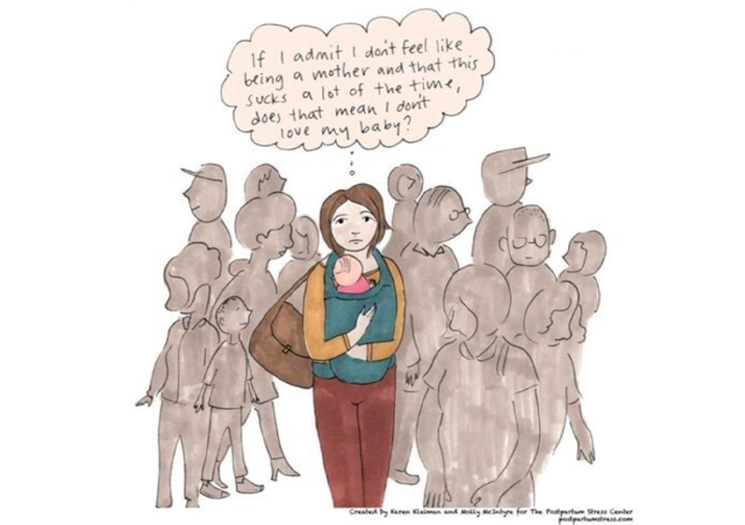
If you or a loved one is suffering from depression during pregnancy or after childbirth, you are not alone. “Many new moms have feelings of sadness and anxiety, and a percentage of pregnant women and new moms can experience a complication of pregnancy known as postpartum depression,” says Patricia McGettigan, M.S., Clinical Psychologist and Administrative Director of Holy Redeemer Counseling Center.
Most new moms experience some form of “baby blues,” feelings of sadness or worry lasting about two weeks after childbirth. For some women, these feelings do not go away and become worse. If you or a loved one is experiencing this ongoing depression, talk with your doctor. It may be postpartum depression, a mood disorder that affects about 15 percent of new moms.
If you are pregnant, you are also vulnerable to depression – it affects about 10 percent of expectant mothers. And about half of women with postpartum depression had symptoms during pregnancy. Depression that occurs both during pregnancy and up to 12 months after childbirth is called perinatal depression.
“Depression during pregnancy or following the birth of your baby does not mean you are a bad mom,” says McGettigan. “It is a psychological disorder, and it is treatable.” Experts believe that hormonal changes may be to blame, but depression is not caused by one thing.
If you think you might be depressed, make an appointment with a licensed therapist at the Redeemer Health Counseling Center at 215-914-4190 or visit our Counseling Center page.
Another excellent resource, The Postpartum Stress Center. Cartoon image provided by Karen Kleiman, Molly McIntyre, The Postpartum Stress Center, and Familius (publisher).
categories:
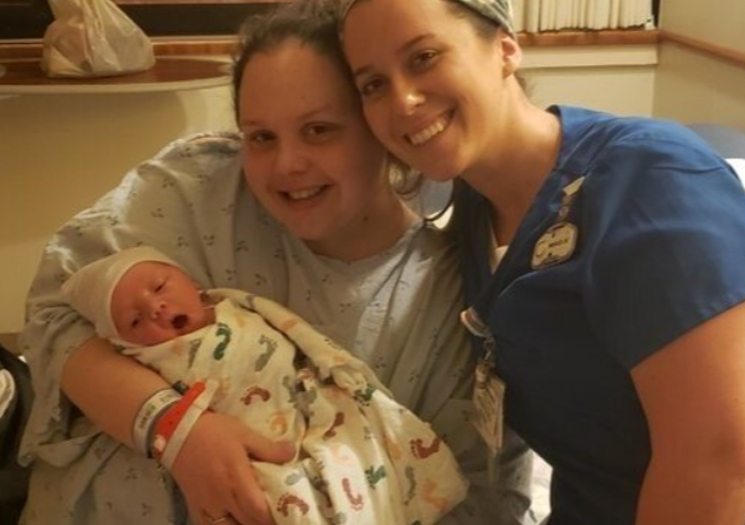
“If it wasn’t for Holy Redeemer, I’m worried my son wouldn’t be here.”
Jessica H. was rapidly approaching her due date. At 32 weeks, Dr. Kavous Emami of Millennium OB/GYN referred Jessica to Maternal Fetal Medicine (MFM), just to keep tabs on her baby. Jessica attended her appointments each week as her baby showed no signs of wanting to leave the comfort of the womb. Her due date came and went. Four days after her due date, on March 20th, Jessica went for her ob appointment. Dr. Regina Dougherty asked, “Your bags are packed, right?”
Jessica laughed, but Dr. Dougherty was serious. Her blood pressure was through the roof and her baby needed to arrive that day. Jessica returned home to grab her go bag and was admitted into Labor & Delivery at 7:15pm despite no contractions.
A stress test concluded her baby’s heart rate was low. Jessica’s blood pressure continued to climb but her doctors and nurses kept her calm.
“They knew how bad it was but they didn’t want to stress me out,” Jessica said. “The triage nurses, L&D, doctors, everyone made my predicament seem like it was just another day on the unit.”
Jessica’s care team told her that she’d be delivering that evening. With no contractions and minimal dilation, Jessica was in complete disbelief. Her baby didn’t seem to be ready but the baby’s heart rate remained a concern.
The hours passed and labor finally began. Jessica was doubled over in pain and begged for the epidural.
“The anesthesiologist was amazing, I think everyone on the floor heard me yell for the epidural but my nurse, Allison and my anesthesiologist were so supportive, friendly and best of all, calm,” Jessica said.
Six hours and 36 minutes from start to finish, Jessica’s baby boy was born at 8lbs and 2 oz.
But the umbilical cord was wrapped around his neck and he wasn’t breathing right away.
“I swear every doctors from cardiology to endocrinology to neonatal was there making sure he was okay,” Jessica said.
Quick thinking and protocol was put in place and baby Michael was taken to the NICU for observation. He spent three hours on the unit before being released to the Maternity ward and into his anxious mother’s arms.
“When he was born, I thought there was a chance I wasn’t going home with him,” Jessica said. “If it wasn’t for Holy Redeemer, I don’t know if I would have come home with my child. I couldn’t be more grateful, he is healthy and happy.”
That evening, every doctor and nurse who worked with Michael and Jessica stopped by her room to make sure the pair was doing okay. Jessica felt like family. She wasn’t just “another patient” or a “number,” she was a person and she knew Redeemer Health cared about her and her son.
Now Jessica is home with her son and her two-year-old daughter, Mckenzie. She is adjusting to her role as big sister and finally enjoys helping her mom with her new brother.

categories:

Healthy eating is always important, but when you’re eating for two, it’s twice as important! The right foods can help boost your energy level and mood, while minimizing the negatives that come along with pregnancy, such as morning sickness. Below is a list of 10 foods that are excellent sources of vitamins and nutrients for you and baby:
Broccoli: Rich in fiber, abundant in calcium and fuels the body with disease-fighting antioxidants, broccoli is a vegetable that packs a nutritious punch. It is also a good source of vitamin C.
Bananas: These yellow fruit staples are rich in potassium and offer a quick burst of energy that can help fight off fatigue. Bananas are also easy on the stomach so if you’re feeling nauseated they are a great option.
Berries: Packed with water, healthy carbohydrates, vitamin C, fiber and best of all, antioxidants, berries are tiny superfoods that are perfect for snacking or to add to salads, smoothies or cereals. You can head to your local berry farm and pick from an array of in-season berries while spending the day outside with family and friends.
Sweet Potatoes: Vitamin A is another essential vitamin for you and baby. Sweet potatoes are an easy way to get a good dose of vitamin A. They are also high in vitamin C, folic acid, and fiber, which are all important nutrients for any stage of pregnancy.
Whole Grains: Whole grains are high in fiber and nutrients, including the antioxidant Vitamin E and various minerals. There are lots of different options to choose from such as barley, buckwheat, oats and spelt. Today you can find a variety of whole grain breads and cereals as well, just be sure to choose products that have not been processed.
Greek Yogurt: Did you know Greek Yogurt has twice the protein of regular yogurt? Many brands also offer half the sugar too. Greek yogurt is a great source of probiotics and calcium. Calcium helps keeps bones strong and contributes to the growth of a healthy skeleton for your baby.
Eggs: These protein powerhouses have amino acids that are the building blocks of cells in your body and your baby’s body. Egg yolks also contain choline, which helps your baby’s brain and spinal cord develop.
Salmon: Omega-3 fatty acids are essential for your baby’s neurological and visual development. Best of all, salmon is a mood booster that is a low-mercury seafood option.
Lean Meats: For high-quality protein, turn to lean meats such as skinless chicken and turkey, pork chops, and lean beef.
Avocado: Considered a superfood, avocados are full of healthy fats and offer nearly 20 vitamins and minerals in every serving including potassium, which helps control blood pressure, lutein, which is great for eye health and folate, a B-vitamin which assists with cell repair.
There are many delicious and healthy food options to choose from when eating for two. Check out recipes online to find new ways to prepare these nutritious staples and enjoy every bite during your pregnancy journey.
categories:
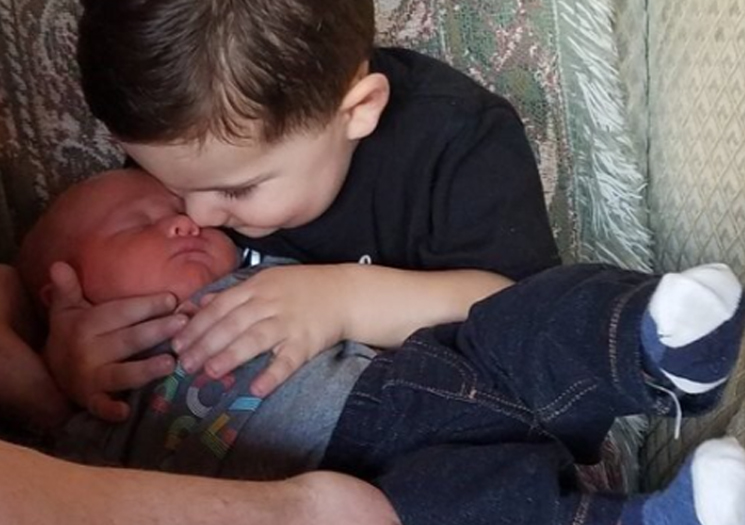
When Nicole and Joe Harrigan of Tacony, were pregnant with their second child, they were very surprised. First of all, they thought their baby was a girl throughout the entire pregnancy. But on March 26th, Nicole gave birth to a beautiful baby boy. That wasn’t the only surprise. Aidan was 10 pounds, 2 ounces, 22.5 inches long and four weeks early.
Despite being a healthy size, Aidan had some breathing difficultly and was admitted to Holy Redeemer Hospital’s Neonatal Intensive Care Unit for specialized treatment. He was placed on a CPAP machine, given a feeding tube and monitored closely.
“It was really scary,” Nicole said.
Aidan was a healthy size, but he still needed some extra care during his first few hours in the world. Fortunately he could breathe on his own by the end of the day. Any time Nicole or Joe had a question, their nurses were ready with answers.
“Our nurses were really great,” Nicole said. “They carefully explained everything and didn’t make us feel stupid for asking so many questions.”
Nicole was eager to bring her son home. Her firstborn, Joey, turned two on March 3rd. She wanted the whole family to be together.
“You feel bad. When you’re home, you’re away from your newborn and when you’re at the hospital, you’re away from your toddler,” Nicole said.
Aidan made exceptional progress and after several days he graduated the NICU and could finally go home. Now a two-child household, Nicole and Joe were nervous about how Joey would react to their new addition. As soon as Nicole introduced Aidan to his older brother, Joey said, “Hi baby” and handed Aidan his pacifier. It was perfect.
With two very different birth experiences at Holy Redeemer Hospital, Nicole is still immensely grateful to the staff who care for her and her sons.
When asked what advice she has for other NICU moms Nicole said, “It is just temporary. It is going to be difficult but you can get through it. The most important thing is that your baby is healthy.”
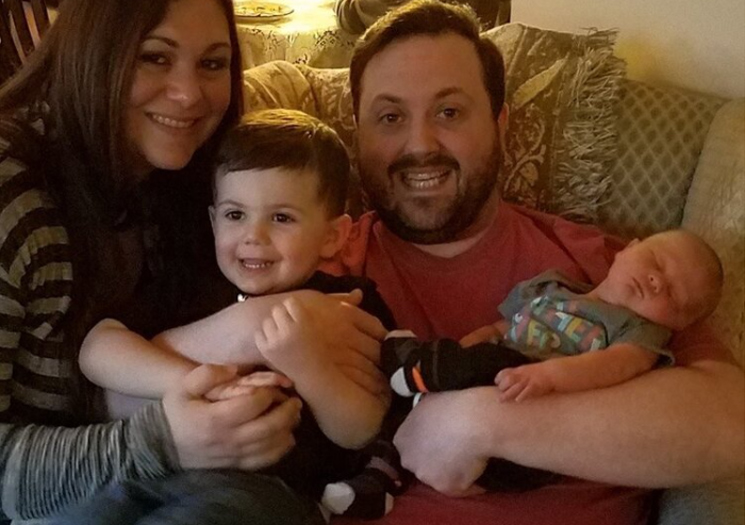
categories:

The bond between mother and child is one of the most important connections humans can make. But the bond between father (or a father figure) and child is just as vital.
“The impact of a father’s presence—or absence—in his children’s lives can have lifelong effects,” says Joel Kramer, D.O., OB/GYN at Kramer OB/GYN and Associates, a Redeemer Health practice.
Fortunately, today’s culture encourages men to go beyond traditional roles and become involved, caring supporters of their children.
Studies Show Dad’s Influence
A father’s presence can enhance his child’s life from birth. In one study, premature babies showed improved weight gain in the hospital if their fathers visited often. The infants also did better on developmental tests during their first 18 months. Research points to other unique contributions of fathers:
- Fathers help their children develop intellectually and socially through physical play. Mothers are more likely to talk and teach.
- Children whose fathers take part in their lives are more likely to have higher college entrance exam scores, greater educational success, and better economic status.
- Teens who feel close to their fathers—even if the fathers don’t live with them—are far less likely to smoke.
- Having a father who exercises is the single biggest factor in whether or not teens are physically active, according to another study.
- A healthy, involved father can help ease the impact on children if their mother suffers from depression or other mental health issues, research shows.
Be a Healthy Role Model
Support children’s schooling. Know who your children’s teachers are and attend parent-teacher conferences. Volunteer for school activities. Talk with your children about what’s going on at school.
Be a positive parent. Establish clear limits so that children know your expectations. “Encourage children to share their feelings and listen attentively,” says Dr. Kramer. “Help them set achievable goals and celebrate their accomplishments.”
Have fun. Play games, go places, read together, tell jokes, and share plenty of affection.
Model healthy habits. Exercise regularly; eat a healthy, low-fat diet; and don’t smoke. “Actively encourage children to follow a healthy lifestyle,” says Dr. Kramer. “Play physical games with them, offer healthy foods, and limit TV and video-game time.


categories:

From breakfast to bedtime, being a mom is a full-time job. You got this. YOU ARE doing a great job! Though, an empty tea pot cannot fill other cups. You need time for yourself every now and again. If you find yourself feeling like that empty tea pot, here are five ways you can practice self-care:
1. Take a Mindful Minute (or Five) – Sometimes you just need a minute to yourself and a minute is all you can spare. There are many applications for your smart phone or tablet that offer guided breathing exercises and meditations around five minutes or less.
Check out Stop, Breathe & Think, The Mindfulness App or Headspace just to name a few. Taking a break from your electronics? No problem. Find a quiet space where you can sit for five minutes without interruption. Set a timer for five minutes. Close your eyes and try to identify every sound you hear in that moment. And if other thoughts enter your mind while you are doing this, ok. Acknowledge them and then let them go….
2. Start a Gratitude Journal – Studies have proven that keeping a gratitude journal can improve emotional and physical well-being. Start small by carving out five minutes of your day to jot down a few things you are thankful for. Gradually develop a routine of writing in your gratitude journal each day. When you’re feeling overwhelmed, grab your journal and reread some of your previous entries for an instant mood boost. It can be anything you are grateful for from your amazing child to your hair looking fabulous.
3. Connect with Nature – As a busy mom, you might not have a lot of free time to take a walk around the block. Try stepping outside your home for a few moments to catch some fresh air.
4. Get your Zzz’s – Not getting enough sleep is a major cause of illness and stress in everyone, especially moms. Exhaustion can lead to irritability and anger which then leads to more guilt. Make a plan for better sleep. It’s hard, we are moms, we get it. Try these tips once the kiddos go to sleep at night (even if they may only be sleeping for a short amount of time…sigh): power down screens at least 30 minutes before bedtime, try reading or listening to a great new book, consider the use of a lavender scented eye pillow or other essential oils to help you relax.
5. Seek Support - Asking for support can be difficult. It doesn’t mean you aren’t handling everything well. You just need time for you. Every now and again, it’s necessary for you and your family. Support can come in many forms including talking to a family member, catching up with friends, getting a baby sitter or connecting with a local moms group.
categories:

“I never knew before the summer of 2014 that tucked in the corner of the 4th floor at Holy Redeemer Hospital, there would be a unit that was created for saving babies lives. But now I know.”
Kelly Gallagher’s Story
There are moments in our lives that change us in indescribable and powerful ways. Sometimes we do not know we have been changed until the moment has already left us. Each blissful moment that, for better or worse, encompasses a tiny piece of what makes our heart beat a little faster to remind us of how alive we are. Having a baby is one of those amazing links to the chain in which we build our path in life. Balloons, gifts, flowers and big hugs abound the hospital room- remind us of the celebration being had in the new life that was just born. But what happens when your baby comes before you are ready and needs more care than anticipated?
The Holy Redeemer Hospital NICU became our home for a month that summer after our twin boys, Connor Joseph and Curran James, made their dramatic entrance into the world 8 weeks early. Weighing in at a hefty 2.11 and 5.1 pounds respectively, I often define my life from before and after of the day I delivered the boys. One moment I was heading in for my routine testing and the next being administered steroid shots and terrified. 48 hours later, in the OR with a team of strangers, I laid cold and afraid. Every ounce of my body, my brain and my heart rejoiced when they came out screaming. Before I could exhale, both were whisked away and hooked up to more tubes, machines and monitors than I could count. But even today, if I had to relive one day over and over again what would it be? Hands down- the day I brought two new lives into this world.
In the next few weeks, I made deals with God at their bedside that I am too ashamed to admit. I sobbed heavily, salt-filled tears that poured down my face as I questioned how my body could fail me. I held vigil at their bedsides awaiting morning rounds with the doctors to gain every inch of information I could to bring me one step closer to taking my boys home. Somewhere, through the fog, I celebrated with my husband.
Our two beautiful twin boys who made us a family of 6. After four days, it was my turn to go home. My other two children missed their mommy and I knew they needed to see my smile desperately. I kissed the twins goodbye, sat down in my wheelchair and headed for the elevator. No balloons, no flowers and no smile. Those five minutes alone with a strange nurse and my husband were life-altering. I have delivered two full term babies at Holy Redeemer before. This was different. How could they expect me to leave without my babies?
I left my heart at Holy Redeemer as I got into my waiting car. I clung to the door and asked God for the strength to trust in the power of healthcare. I knew from my time there that the staff was top notch that was never an issue. But the nagging weight of the guilt I could not shake. There had to be a better way for moms to balance their baby’s need for care and the maternal bond that I felt I was leaving on the 4th floor.
It was those first few days that gave me the drive to make a difference and give birth to something hopeful.”
The Superhero Project. Where there is a will there is always a way.
After doing a lot of personal research, we met with the hospital and explained that there is technology available that places cameras into the isolates and allows parents and families to see the baby even when they are unable to be at their bedside. We knew that this would not have only changed our lives as NICU parents but had the capability to change the experience of hundreds of other babies born into the NICU at this hospital each year.
Funding Angel Eyes
In March of 2016, thanks to many amazing donations to The Superhero Project, Angel Eye Cameras were installed in the Holy Redeemer Hospital NICU. The Superhero Project strives to continue to aid and encourage families in the NICU and to provide assistance and resources to many hospitals in the greater Philadelphia area. The SuperHero project has donated $100,000 in Funding for Angel Eye cameras to date, currently supporting 5 Philadelphia hospitals, including Holy Redeemer and have 2 more on the docket for 2019.

In April 2019, The Superhero Project started Kelly’s Kloset, with the mission to provides every family at Holy Redeemer Hospital with a bag to leave home with that includes care items during their stay. It also provides new preemie clothes, hats, blankets and swaddles for families who are unable to afford them.

Starting in the Spring of 2019, PJ’s with a Smile will begin at Redeemer Health. The PJs with a Smile campaign seeks to provide NICU mothers with a brand new set of pjs, a letter of encouragement from a former NICU mom and a fresh flower on their day of discharge. Our hope in creating this campaign is to encourage new mothers to get the necessary rest needed in the post-partum phase, feel motivated and encouraged with the support of a handwritten letter and use the flower as a reminder of the beautiful life they just brought into the world.
You got this Mama!
Click here to learn more about
The Superhero project or to donate.
categories:

Maintaining a healthy lifestyle is important when you are planning your pregnancy. Consider the following while trying to conceive:
Schedule a visit to your OB/GYN prior to conception to discuss any questions or concerns you or your partner might have and get recommendations on how to optimize your health prior to becoming pregnant.
Maintain a healthy weight. If you are a normal weight before pregnancy, gaining 25 to 35 pounds during pregnancy is advisable. If you are underweight prior to pregnancy, you should gain enough to be within a normal range. Excess weight prior and during pregnancy increases your risk of several conditions that can negatively impact you and your baby.
Start taking prenatal vitamins with folic acid at least 1 month before pregnancy and continue through your pregnancy. Because folic acid is important for your baby’s development and getting enough is difficult through diet alone, taking a vitamin supplement is recommended. Consider talking to a nutritionist about your diet to incorporate the nutrients needed for your baby’s prenatal development.
Stop smoking, drinking alcohol and recreational drug use, these substances can have very harmful effects on your baby, especially in the first trimester. Your doctor can help create a plan to taper off of these substances before trying to conceive.
Prior to conception, monitor any special medical conditions that you might have such as high blood pressure, diabetes, depression, or seizures. It is important to manage these conditions. Do not stop prescribed medication. Talk to your doctor about the medications you are currently taking, including over-the-counter and natural medications. Some medications might not be safe during pregnancy.
Be prepared to provide your physician with a thorough medical history for you, your partner and both of your families. Some conditions are inherited, and you may want to consider genetic testing prior to pregnancy to make sure you have the best chance of having a healthy baby.
Planning ahead before getting pregnant can make a big difference during your pregnancy for both you and your baby. These tips can help you get started; but be sure to ask your doctor what would be best for you.
To find an OB/GYN that’s the right fit for you check out our Redeemer Health providers.
Dr. Jessica Kroes from Women’s Care is here to help patients with their journey. “When someone comes to the doctor, they might be nervous, they might be vulnerable if it is there first pregnancy, and they may have a lot of questions. Listening to the patients and being their support is extremely important.”
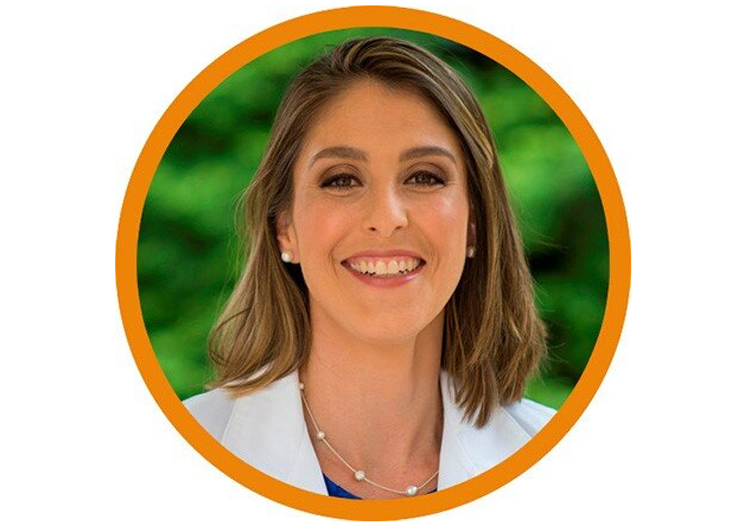
Meet Jessica
Dr. Kroes specializes in Obstetrics & Gynecology with our Women’s Care Center. She has a degree from La Pontificia Universidad Javeriana, and completed her residency at the Bronx Lebanon Hospital Program associated with Mount Sinai. Her passion for OB/GYN is driven by the lifetime bonds she builds with her patients. When she’s not sharing baby talk, Jessica enjoys traveling, playing tennis and cooking. She’s fully bilingual in Spanish and English.
categories:
Cancer of the colon or rectum is the second leading cause of death from cancer in the U.S. But the outlook is bright: Experts are studying ways to prevent this cancer that attacks the digestive system.
Six Lifelong Habits
Research shows that the following tactics can lower your risk for colon cancer:
- Maintain a healthy weight and participate in regular physical activity.
- Limit your intake of red meat and animal fats
- Eat a diet high in fruits, vegetables and whole grains
- Curb your alcohol consumption. Also quit (or never start) smoking cigarettes.
- Increasing the amount of folic acid and vitamin B-6 in your diet may offer protection against colon cancer. However, supplementing with vitamins containing folic acid or B-6 does not appear to provide protection.
- Get adequate calcium and vitamin D from foods or a supplement. Talk with your doctor about calcium amount recommendations as there are several conditions where calcium supplementation can be dangerous.
The Seventh Strategy: Screenings
“Most curable colon cancers occur in patients who did not have symptoms at the time of diagnosis,” says Dr. Soo Kim, colon and rectal surgeon with Colon and Rectal Associates, Ltd. at Holy Redeemer. “Even if you have no symptoms whatsoever, that colon cancer screening is a MUST.”
Colon cancer may cause symptoms including:
- Blood in the stool
- Recurrent stomach pain or cramping
- Stools narrower than usual
- Unexplained weight loss
The American Cancer Society recommends people with an average risk for colorectal cancer start regular screening at age 45, while the U.S. Preventive Services Task Force advises beginning screening at age 50. If you have an increased risk for colorectal cancer, you may need to get tested at an earlier age. People at increased risk include:
- Individuals with a personal or family history of colon cancer or polyps, which are precancerous growths in the colon or rectum
- Anyone with inflammatory bowel disease, such as ulcerative colitis or Crohn’s disease.
To learn more or to schedule a colonoscopy or call 215-517-1250.
categories:

Myth: You have to drink milk to make milk
Fact: You do not need to drink milk to make milk. Your body works on the simple principal of supply and demand, or really demand and supply. When the baby takes the milk out, the body replenishes. The more you nurse or pump the more milk your body will produce.
Myth: You don’t have enough milk until day three when your milk comes in
Fact: Trust your body. Trust the process. Your first milk, called colostrum, is produced in a limited quantity, but it’s perfectly balanced for baby’s belly.
Myth: The first milk colostrum is all baby needs. You don’t need to breastfeed longer than a few days
Fact: Breastmilk contains vital cells that fight off bacteria and viruses while you nurse. Also, breastfeeding has many other important health benefits for your baby. The American Academy of Pediatrics recommends that infants be exclusively breastfed for about the first 6 months with continued breastfeeding along with introducing appropriate complementary foods for 1 year or longer.
Myth: If baby nurses longer than 15 minutes, you’re their pacifier
Fact: Babies breastfeed for more than milk. They come for thirst, hunger, love and comfort. Sucking is a positive response and promotes milk production.
Myth: Feeding on demand creates a demanding child
Fact: Feeding your baby when they’re hungry and holding them when they’re upset is precisely what mom should do. The number of feedings your baby needs each day depends on your milk storage capacity. A mother with a large storage capacity can feed her baby less times each day. Your baby will let you know how much they need. Remember, watch for feeding cues!
Myth: Women with small or large breasts don’t make enough milk
Fact: Your breast size doesn’t come into play when it comes to milk production, even though they do get bigger once baby comes! Fatty tissue determines breast size. Milk is made in the ducts, not from the fatty tissue.
Myth: Breastfeeding always hurts
Fact: In the first two weeks, you may feel some pain in the first 30 seconds of feeding. If you’re experiencing more, your latch should be checked by a lactation consultant. Sometimes simple adjustments to latch and positioning can eliminate pain.
Myth: Eating gassy foods gives your baby gas
Fact: Your breast milk is made from your blood. We get gas when we try to digest the fiber in food like broccoli and cabbage. Since your baby doesn’t ingest the fiber, they won’t experience the gas from those foods. Babies can be gassy, but don’t blame the beans. And remember, the healthiest foods for us are often the gas producers.
Got more myths we can help bust or any advice / feedback on breastfeeding to share? Post any questions or comments you may have below.
To speak with or to schedule an appointment with a lactation consultant, reach out to the Breastfeeding Resource Center.

